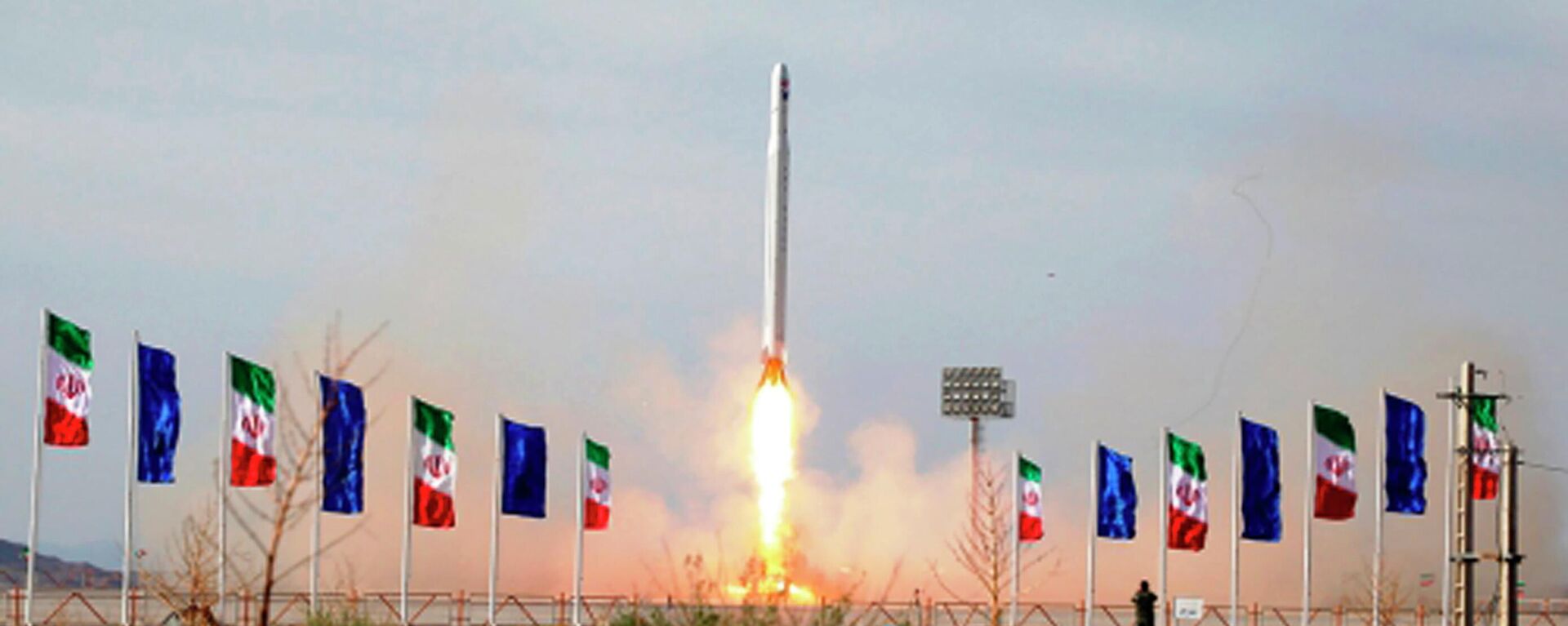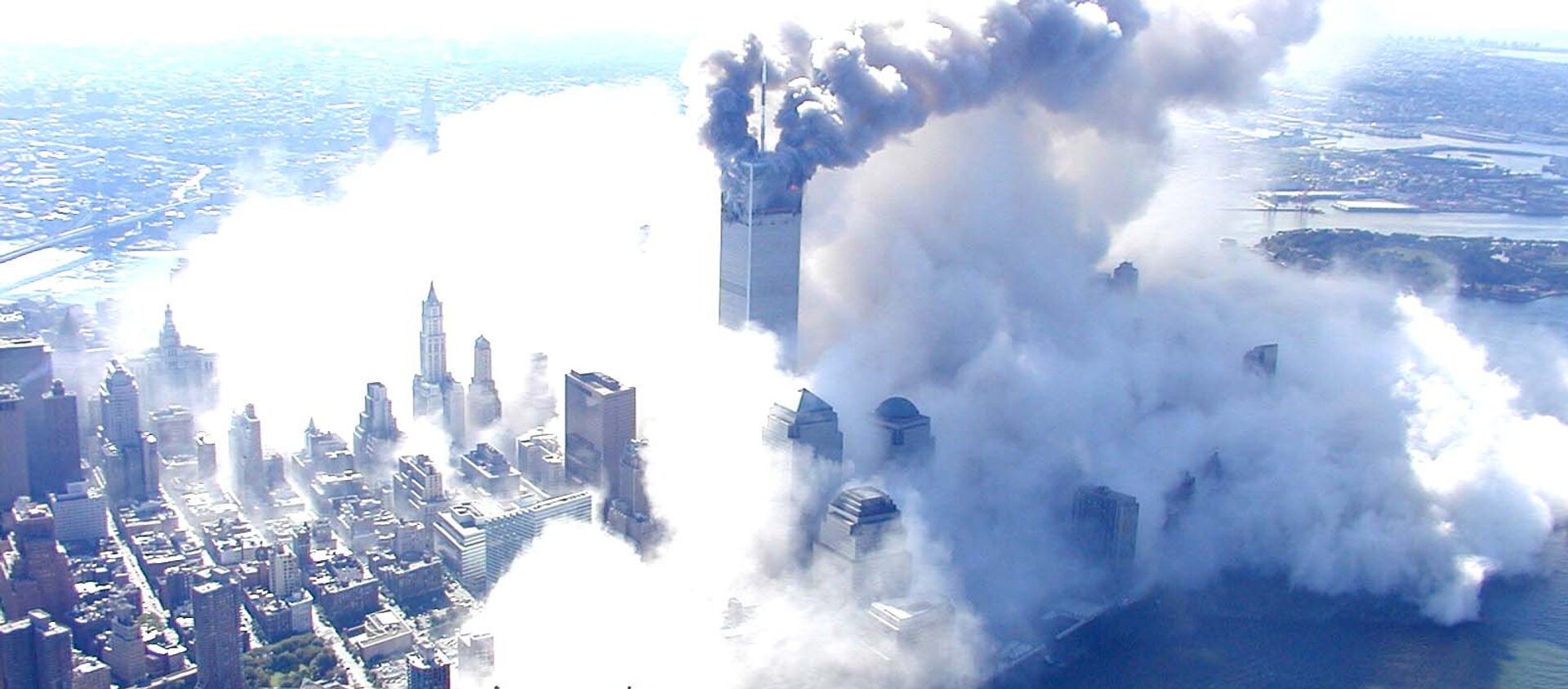https://sputnikglobe.com/20231206/iranian-court-rules-us-must-pay-50-bln-in-compensation-for-soleimanis-murder-1115434567.html
Iranian Court Rules US Must Pay $50 Bln in Compensation for Soleimani’s Murder
Iranian Court Rules US Must Pay $50 Bln in Compensation for Soleimani’s Murder
Sputnik International
The January 3, 2020 assassination of Islamic Revolutionary Guard Corps Quds Force Commander Qasem Soleimani briefly brought Iran and the United States to the brink of all-out war, with Tehran threatening a tit-for-tat response only to discover that it could not find any American official of equal value.
2023-12-06T18:01+0000
2023-12-06T18:01+0000
2023-12-06T18:01+0000
world
iran
tehran
iraq
qasem soleimani
donald trump
mike pompeo
us
islamic revolutionary guard corps (irgc)
cia
https://cdn1.img.sputnikglobe.com/img/07e7/01/04/1106040460_0:32:748:453_1920x0_80_0_0_e677aa3d9d8d3965a7dfa1b8b992e57d.jpg
The 55th Branch of the Legal Court of International Relations in Tehran has issued a historic ruling ordering the United States government and dozens of individuals and entities charged with conspiring to assassinate Qasem Soleimani to pay nearly $50 billion in compensation for the commander’s killing.The Tehran court ruled that former President Donald Trump, former Secretary of Defense Mike Pompeo, US intelligence agencies including the NSA and the CIA, and 38 other individuals, organizations and entities were responsible for Soleimani’s death.Wednesday’s ruling is the latest in a series of high profile and highly publicized back and forth legal battles being waged by Iranian and American courts, and follows a pair of rulings in Iranian courts earlier this year ordering the US government to pay out hundreds of millions of dollars in compensation for the failed 1980 US Embassy hostage rescue operation, and a plot aimed at couping the Iranian government after the 1979 Revolution, which saw the ouster of US-backed strongman Mohammed Reza Pahlavi.In the US, by contrast, courts have had better luck, able to take advantage of the tens of billions of dollars in Iranian state wealth stuffed in US banks by the shah by doling it out to a series of plaintiffs in a series of outlandish cases.In 2016, for example, a US court ordered Iran to pay family members of the victims of the 1983 bombing of a US Marine barracks in Beirut, Lebanon, an incident Tehran has vehemently denied having anything to do with. In 2018, a US judge ordered Iran to pay $6 billion in compensation to victims of the 9/11 terror attacks –something even US officials admit the Islamic Republic had absolutely nothing to do with (Tehran has, on the contrary, consistently battled with the extremists the US held responsible for 9/11, both at home and across the region).US officials never denied Washington’s responsibility for Soleimani’s 2020 murder, with Donald Trump curiously continuing to brag about it even years after leaving office, and comparing the late IRGC commander to Abu Bakr al-Baghdadi, the Daesh (ISIS)* leader Iran spent years fighting, and whom Soleimani alleged was actually secretly backed by Washington.Qasem Soleimani and Abu Mahdi al-Muhandis, a senior commander of Iraq’s anti-Daesh Popular Mobilization Forces, were killed in a US drone strike near Baghdad International Airport on January 3, 2020 during Soleimani’s trip to Iraq for secret talks aimed at normalizing ties between Iran and Saudi Arabia (relations were ultimately restored this year in a breakthrough diplomatic deal brokered by China).Iran responded to Soleimani’s death by launching ballistic missiles at a pair of US bases in Iraq, leaving over 100 US military personnel with traumatic brain injuries and bringing Tehran and Washington to the brink of war. The Biden administration eventually moved to rebrand its Iraq presence from a combat mission to an ‘advise and assist’ mission, scrapping Trump-era plans to pull out of the country entirely.Tehran initially threatened to target US officials, including Trump, over Soleimani’s death in an eye-for-an-eye scenario, but ultimately rejected the idea after proving unable to find any American commander or political leader of equal value.* A terrorist group outlawed in Russia and many other countries.
https://sputnikglobe.com/20231010/iran-to-launch-soleimani-first-homegrown-satellite-system-in-next-2-years-space-agency-1114071158.html
https://sputnikglobe.com/20180503/Judge-Iran-Pay-6-Billion-911-Victims-1064104146.html
iran
tehran
iraq
Sputnik International
feedback@sputniknews.com
+74956456601
MIA „Rossiya Segodnya“
2023
News
en_EN
Sputnik International
feedback@sputniknews.com
+74956456601
MIA „Rossiya Segodnya“
Sputnik International
feedback@sputniknews.com
+74956456601
MIA „Rossiya Segodnya“
iran, united states, billion, dollar, compensation, qasem soleimani, irgc, islamic revolutionary guard corps, killing, murder, assassination, death, ruling, court
iran, united states, billion, dollar, compensation, qasem soleimani, irgc, islamic revolutionary guard corps, killing, murder, assassination, death, ruling, court
Iranian Court Rules US Must Pay $50 Bln in Compensation for Soleimani’s Murder
The January 3, 2020 assassination of Islamic Revolutionary Guard Corps Quds Force Commander Qasem Soleimani briefly brought Iran and the United States to the brink of all-out war, with Tehran threatening a tit-for-tat response only to discover that it could not find any American official of equal value.
The 55th Branch of the Legal Court of International Relations in Tehran has issued a historic ruling ordering the United States government and dozens of individuals and entities charged with conspiring to assassinate Qasem Soleimani to pay nearly $50 billion in compensation for the commander’s killing.
The $49.7 billion award for “material, moral and punitive damages,” based on a lawsuit filed by over 3,300 Iranians, followed public hearings and a ‘diligent review’ of the evidence.
The Tehran court ruled that former President Donald Trump, former Secretary of Defense Mike Pompeo, US intelligence agencies including the NSA and the CIA, and 38 other individuals, organizations and entities were responsible for Soleimani’s death.

10 October 2023, 15:00 GMT
Wednesday’s ruling is the latest in a series of high profile and highly publicized back and forth legal battles being waged by Iranian and American courts, and follows a pair of rulings in Iranian courts earlier this year ordering the US government to pay out hundreds of millions of dollars in compensation for the failed 1980 US Embassy hostage rescue operation, and a plot aimed at couping the Iranian government after the 1979 Revolution, which saw the ouster of US-backed strongman Mohammed Reza Pahlavi.
Iran has limited leverage with the US when it comes to collecting the money awarded by its courts, with American companies largely pulling out of the Middle Eastern nation after 1979 and Washington slapping Tehran with thousands upon thousands of sanctions, making business transactions between the two countries virtually unheard of.
In the US, by contrast, courts have had better luck, able to take advantage of the tens of billions of dollars in Iranian state wealth stuffed in US banks by the shah by doling it out to a series of plaintiffs in a series of outlandish cases.
In 2016, for example, a US court ordered Iran to pay family members of the victims of the 1983 bombing of a US Marine barracks in Beirut, Lebanon, an incident Tehran has vehemently denied having anything to do with. In 2018, a US judge ordered Iran to pay $6 billion in compensation to victims of the 9/11 terror attacks –something even US officials admit the Islamic Republic had absolutely nothing to do with (Tehran has, on the contrary, consistently battled with the extremists the US held responsible for 9/11, both at home and across the region).
US officials never denied Washington’s responsibility for Soleimani’s 2020 murder, with Donald Trump curiously
continuing to brag about it even years after leaving office, and comparing the late IRGC commander to Abu Bakr al-Baghdadi, the Daesh (ISIS)* leader Iran spent years fighting, and whom Soleimani
alleged was actually secretly backed by Washington.
Qasem Soleimani and Abu Mahdi al-Muhandis, a senior commander of Iraq’s anti-Daesh Popular Mobilization Forces, were killed in a US drone strike near Baghdad International Airport on January 3, 2020 during Soleimani’s trip to Iraq for secret talks aimed at normalizing ties between Iran and Saudi Arabia (relations were ultimately restored this year in a breakthrough diplomatic deal brokered by China).
Iran responded to Soleimani’s death by launching ballistic missiles at a pair of US bases in Iraq, leaving over 100 US military personnel with traumatic brain injuries and bringing Tehran and Washington to the brink of war. The Biden administration eventually moved to rebrand its Iraq presence from a combat mission to an ‘advise and assist’ mission, scrapping Trump-era plans to pull out of the country entirely.
Tehran initially threatened to target US officials, including Trump, over Soleimani’s death in an eye-for-an-eye scenario, but
ultimately rejected the idea after proving unable to find any American commander or political leader of equal value.
Soleimani and his elite Quds Force troopers became celebrated for their central role in the fight against jihadist militias in Syria and Iraq through the 2010s, with the commander enjoying popularity not just among Iran’s conservative religious leaders, but by tens of millions of ordinary Iranians, as well as Christians and other religious and ethnic minorities across the Middle East saved from certain death at the hands of Daesh thanks to the IRGC’s efforts.
* A terrorist group outlawed in Russia and many other countries.




